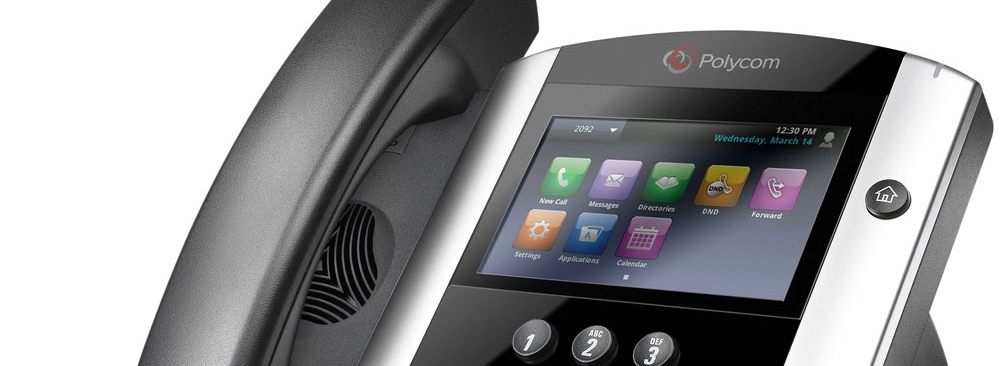Perhaps no industry moves faster than the world of telecoms, with traditional business PBX phone systems looking increasingly ancient on the wall.
At Lineal we’ve been impressed at just how quickly technology has advanced to support far greater user mobility, more flexible deployments, wider integration and dramatically lower costs.
Businesses (and other organisations) have more choices open to them than ever before – we look at 3 of our favourite options that make much more sense than struggling on indefinitely with prehistoric communications.
ShoreTel Connect
ShoreTel’s on-site phone systems have been some of the best for years, and their Connect platform continues to impress.
Connect is available as either a feature-rich and scalable ‘on-site’ system (more familiar to a normal enterprise workplace), or in the cloud (an option increasingly popular with the sub-25 user smaller business market looking to avoid heavier upfront expense or where users are split across multiple offices.)
The Californian company’s handsets are simply the best we’ve ever seen, durable and well-built with clear and effective controls. The noise cancellation built into every handset is so effective it has to be experienced to be believed.
Yet it is ShoreTel’s software (intellectual property so well regarded that telecoms behemoth Mitel has spent several years manoeuvring to purchase the entire company) where the real innovation lies.
A cross-platform, smartphone friendly, cloud-based collaboration and instant messaging unified solution more akin to Slack, Basecamp or Microsoft Teams, ShoreTel takes everything to a whole new level of integration. The onscreen client for Windows/Mac is already a superbly intuitive piece of design, but is increasingly becoming part of a bigger software offering that feels identical across lots of devices and screen sizes.
This is unified communications where your phone system coordinates with technology across a business: not just a tool, but a truly high quality communications ‘solution’.

Gamma Horizon
For maximum flexibility and features at competitive pricing, look no further than one of the UK’s fastest growing business telecoms providers.
Gamma Horizon replaces your boxy on-site PBX with subscriptions to a virtual equivalent in a UK data centre, with VOIP handsets that operate over the internet. 4000 minutes a month are included as standard per phone, sufficient for even the most talkative callers using the cloud-based system.
This brings some major advantages: the phones themselves should work anywhere with an internet connection and power supply (router permitting) allowing one cohesive ‘system’ to cover multiple sites or home offices. The number of subscriptions can be increased or decreased to balance requirements against cost, or to fit with seasonal businesses. More complex features such as advanced call-routing, auto-attendant, smart-phone apps and scheduling are also available, and all the phones in a system will obey the configuration set in the online web portal, wherever they’re located.
Handsets connected to Horizon look and feel like any traditional phone systems in use, with Polycom’s business-like HD Voice hardware our recommendation (portable DECT and conference phones are also available.)
Calls between Gamma phones are free of charge, with other special deals available to Gamma broadband customers. The UK small/medium business sector appears to love the flexibility of Gamma Horizon, so it’s little wonder there are already more than a quarter of a million endpoints out there.
Skype for Business
Why pay for a phone on your desk? Sure, we all find something very reassuring about the heft of a piece of well-manufactured plastic, but when we so many people use laptops and carry smartphones anyway, many businesses will correctly reason that the extra expense is not *actually* mandatory.
Skype for Business is available as both a desktop and smartphone app – users can make or answer audio or video calls from either. Arguably the best thing about this software (’softphone’) alternative is that anyone already using Microsoft Office 365 Business Premium or Enterprise plans has it available to download and use via the cloud without extra charge.
Internal calls between users and instant messaging are free, and integration with Microsoft Exchange allows your Outlook calendar meetings to sync up with the on-screen client. Video conferencing is (surprisingly) smooth and reliable, even on low bandwidth connections, and with handy options for screen sharing and group meetings also available – again at no extra cost.
Add PSTN licensing however (for a fraction of a normal call plan), and Skype’s business version allows you to dial outside Skype for Business to any phone, becoming a fully fledged unified communications solutions and replacement for traditional phone systems.
Skype for Business is brilliant for dispersed teams, mobile-workers and anyone seeking a low cost collaboration solution. More advanced call-routing and auto-attendant options are still being developed, leaving Skype for Business still some way short of an enterprise phone system in the cloud for now, but for businesses looking for a cost-effective next-generation digital transformation, such an option could be ground-breaking.
… and for those who still find a soft-phone a step too far, Skype for Business can still be ‘plugged-in’ to many SIP desk phones or conference phones, for a more familiar call experience.


